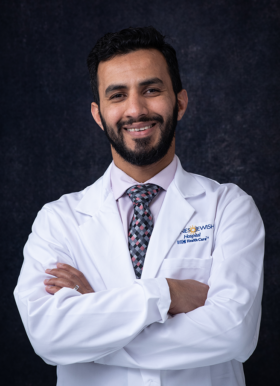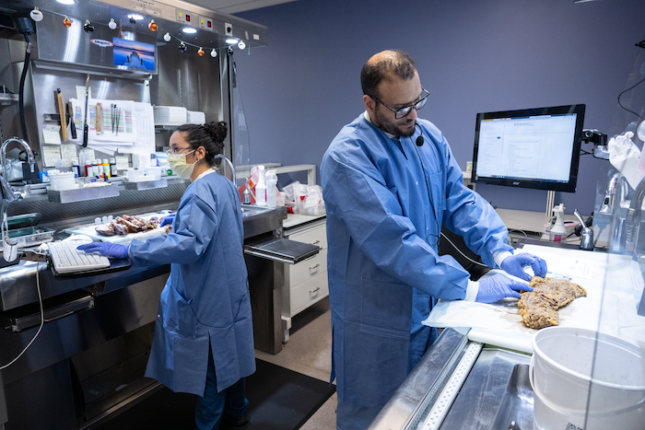
The ACGME-accredited surgical pathology fellowships at Washington University are highly immersive, with a large volume of specimens ranging from the most complex to the most common to many of the rarest. Fellows learn by seeing and doing and by handling, diagnosing, and pre-dictating most of their cases.
The fellowship (two positions) is divided into rotations as described below. These include a variable period of elective time for each fellow, depending on the available coverage and depending on the interests of fellows for the given year. The fellowship provides training in all the major areas of surgical pathology, preparing graduates for academic, private practice or industry careers.
Major strengths of the surgical pathology fellowship include a diverse and abundant case mix, the availability of nationally regarded faculty mentors, graduated responsibility for clinical cases (particularly in frozen section diagnosis) and opportunities for clinical research.
The fellowship was approved by Accreditation Council for Graduate Medical Education (ACGME) in July 1, 2002. This program began in this department in 1953. To date over 145 fellows have graduated from the program.
Rotations include:
Frozen section
The frozen section fellow supervises a team composed of a second-year pathology resident and the frozen section technical staff. Together, the team provides gross intraoperative consultations and performs all frozen sections requested at the South Campus of Barnes-Jewish Hospital (approximately 30/day). The frozen section fellow also spends time at the North Campus Parkview Tower frozen section area, where the bulk of our gynecologic and gastrointestinal frozen sections and intraoperative consults occur. Primary diagnostic responsibility rests with an assigned faculty member during the day. During off-hours and on weekends fellows render diagnoses independently, with faculty backup as needed.
Consults
The consult fellow reviews outside surgical pathology material for patients referred to Barnes-Jewish Hospital (“inside/outside” cases) as well as directed consults (“outside” cases) sent to specific faculty members. The mixture of inside/outside cases includes GU, bone and soft tissue, cardiovascular and pulmonary pathology as well as some overflow cases from other subspecialty services. Directed consults are focused on the areas of soft tissue, genitourinary and pediatric pathology.
Breast
Fellow coverage of the breast service is divided between the general surgical pathology fellows and our subspecialty breast/gynecologic pathology fellows. The surgical pathology fellow rotating on the breast service manages the subspecialized breast pathology service, supervising a first–year resident. The fellow reviews slides on half of in–house cases and all consults, communicates preliminary diagnoses to clinical staff, and takes all phone calls relating to these cases. The fellow grosses a specified number of simple and complicated breast resections to demonstrate grossing proficiency. The fellow participates in consensus conferences and presents at the weekly Breast Cancer multidisciplinary tumor board.
Obstetric/Gynecologic
Fellow coverage of the Obstetric/Gynecologic pathology service is divided between the general surgical pathology fellows and our subspecialty breast/gynecologic pathology fellows. The OB/GYN fellow manages the subspecialized pathology service in this area, supervising a second-year resident. The fellow reviews half of the current surgical cases on this service, as well as all inside/outside consults, signing them out with an assigned staff pathologist. The fellow also grosses a specified number of complicated tumor cases to demonstrate proficiency and grossing as is then excused from further grossing. The fellow participates in consensus conferences and presents at the weekly gynecologic oncology tumor board. Medical students often rotate on this service and are supervised by either the fellow or resident.
Genitourinary
The surgical pathology fellows rotate on our Genitourinary pathology service for approximately three weeks during the year. They have an opportunity to take a representative cross-section of benign and neoplastic biopsies and resection cases for signout with our GU pathology faculty members. They also have an opportunity to review GU pathology consult cases when they are rotating on the service and will attend the subspecialty interdepartmental conferences.
Liver/GI
Although there is a separate liver/GI pathology fellowship, general surgical pathology fellows rotate on this service for 3-4 weeks. During this time they work closely with the rotating second-year resident on service, reviewing a large proportion of the daily in-house liver and GI surgical specimens, reviewing inside/outside hepatobiliary and pancreatic consult cases with the assigned attending and performing the gross examination of selected specimens (pancreatic or hepatic resections). They also review outside consults and present at two interdepartmental conferences relating to liver/GI pathology.
Cardiothoracic pathology
The surgical pathology fellows rotate on our Cardiothoracic Pathology service for approximately three weeks during the year. They have an opportunity to take a representative cross-section of benign and neoplastic biopsies and resection cases for signout with our CT pathology faculty members. They also have an opportunity to review CT pathology consult cases when they are rotating on the service and will attend the subspecialty interdepartmental conferences.
Head and neck
Although there is a separate head and neck fellowship, general surgical pathology fellows rotate on this service for 3-4 weeks. During this rotation, the fellow will perform the gross examination of select ENT pathology specimens, to demonstrate grossing proficiency, and they are then excused from further grossing. They share the service with a PGY1 or 2 resident and will take a representative cross-section of benign and neoplastic biopsies and resection cases for signout with ENT pathology faculty. They will also review ENT pathology consult cases when they are rotating on the service and will attend and present at the ENT Multidisciplinary Tumor conference.
Bone and Soft Tissue pathology
The surgical pathology fellows can choose to rotate on our Bone and Soft Tissue (BST) Pathology service for approximately three weeks during the year. They have an opportunity to take a representative cross-section of benign and neoplastic biopsies and resection cases for signout with our BST pathology faculty members. They also have an opportunity to review BST pathology consult cases when they are rotating on the service and will attend and present at the BST Multidisciplinary Tumor conference.
Elective
Each fellow has elective time in which to pursue subspecialty interests within surgical pathology, special study in areas outside of “general” surgical pathology (e.g., neuropathology, dermatopathology, hematopathology, cytopathology), basic, translational, or clinical research, and quality assurance projects.
Training for the fellowship occurs in state-of-the-art facilities at Washington University School of Medicine/Barnes-Jewish Hospital/St. Louis Children’s Hospital. The Surgical Pathology section is located in the 680,000-square-foot BJC Institute of Health (BJCIH) at Washington University School of Medicine which is an 11-story research building housing laboratories and support facilities and is Washington University’s largest building.
Applicants must have a MD or DO degree (or foreign equivalent with ECFMG certification) and 3 to 4 years of training in anatomic or anatomic and clinical pathology in an ACGME accredited program. Fellows must be board-certified or board-eligible in anatomic or anatomic and clinical pathology. Applicants must be legally authorized to work in the United States.
We are participating in the Surgical Pathology Unified Approach for General Surgical Pathology Fellowship Programs for the 2025-2026 fellowship year. Applications for the 2025-2026 position open on May 1, 2023. Please apply at fellowships.path.wustl.edu.
Applicants must complete the online application and provide their CV, personal statement, photograph, USMLE scores (step 3 optional), and ECFMG certificate if applicable. The application portal will collect contact information for three individuals who will be asked to write letters of recommendation.
Surgical Pathology Unified Approach Timeline:
- Online Applications available: May 1, 2023
- Application review window: July 1st – September 2023
- Interview window: August 14th – October 2023
- Earliest offer date: October 2, 2023, 11am ET (10 AM CT, 9 AM MT, 8 AM PT)
- Acceptance Terms: 24 hours for applicants to accept/decline offer
Note: All applicants will be given a 24-hour period to accept/decline from the time of offer notification.
Address Letters of Recommendation to:
Jon Ritter, MD
Program Director, Surgical Pathology Fellowship
Washington University School of Medicine
660 South Euclid Avenue, Campus Box 8118
St. Louis, MO 63110
jritter@wust.edu
For candidates interested in applying for the 2024-2025 position or for general questions, please contact the fellowship program coordinator Kim Green at greenkd@wustl.edu.
Faculty
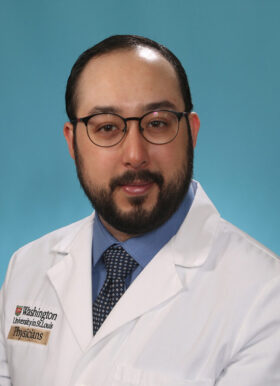
Samuel J. Ballentine, MD
Assistant Professor, Pathology & Immunology
Associate Residency Director
- Email: samuel.ballentine@wustl.edu
Division: Anatomic & Molecular Pathology
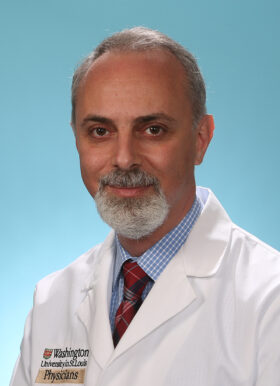
Fouad Boulos, MD
Associate Professor, Pathology & Immunology
Section Head, Breast Pathology
Director, AMP Core Lab
- Phone: 314-338-1292
- Email: bfouad@wustl.edu
Division: Anatomic & Molecular Pathology
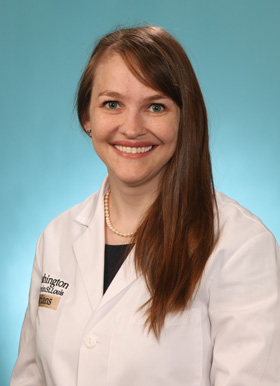
Kathleen Byrnes, MD
Associate Professor, Pathology & Immunology
Director, MS3-4 AP Clinical Clerkship
Associate Director, Liver/GI Fellowship
- Email: kbyrnes@wustl.edu
Division: Anatomic & Molecular Pathology
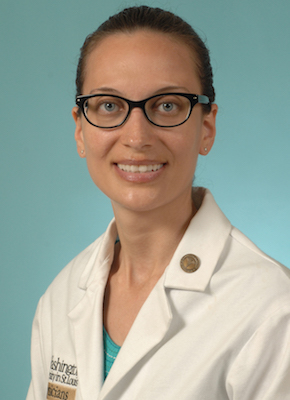
Rebecca Chernock, MD
Professor, Pathology & Immunology
Section Head, Head and Neck Pathology
Director, Selective (Head & Neck) Pathology Fellowship
- Phone: 314-362-0101
- Email: rchernock@wustl.edu
Division: Anatomic & Molecular Pathology
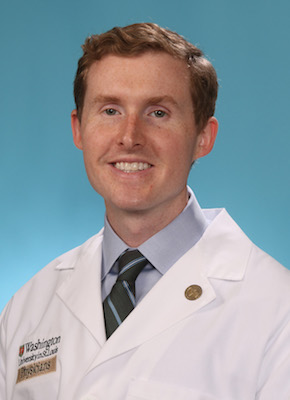
John SA Chrisinger, MD
Associate Professor, Pathology & Immunology
Section Head, Bone and Soft Tissue
- Email: jschrisi@wustl.edu
Division: Anatomic & Molecular Pathology
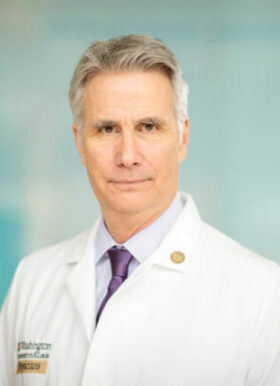
Richard J. Cote, MD, FRCPath, FCAP
Edward Mallinckrodt Professor and Chair, Department of Pathology & Immunology
Pathologist-in-Chief, Barnes-Jewish Hospital
- Email: rcote@wustl.edu
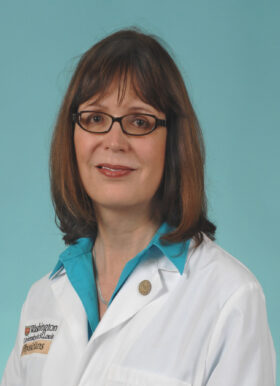
Erika C. Crouch, MD, PhD
Carol B. and Jerome T. Loeb Professor of Medical Education
Professor, Pathology & Immunology
Vice Chair for Education
Gateway Histology and Pathology Thread Leader
Gateway Module 2 Phase 1 Co-leader
- Email: crouch@wustl.edu
Division: Anatomic & Molecular Pathology
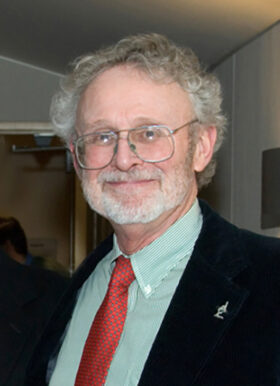
Louis P. Dehner, MD
Professor, Pathology & Immunology
- Phone: 314-362-0150
- Email: dehner@wustl.edu
Division: Anatomic & Molecular Pathology
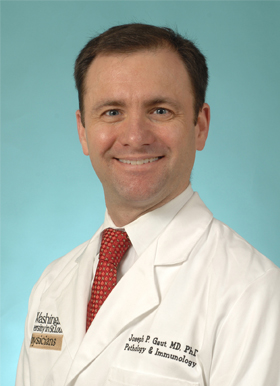
Joseph P. Gaut, MD, PhD
Ladenson Professor, Pathology & Immunology
Division Chief, Anatomic and Molecular Pathology
Section Head, Genitourinary Pathology, Renal Pathology, Donor Organ Evaluation
- Phone: 314-747-2541
- Email: jpgaut@wustl.edu
Division: Anatomic & Molecular Pathology
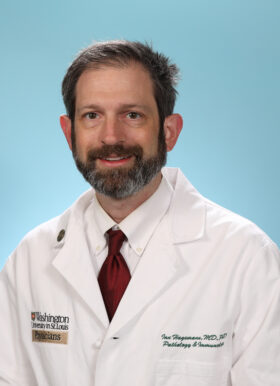
Ian S. Hagemann, MD, PhD
Associate Professor, Pathology & Immunology
Associate Professor, Obstetrics and Gynecology
Director, Gynecologic and Breast Pathology Fellowship
- Phone: 314 747-8924
- Email: hagemani@wustl.edu
Division: Anatomic & Molecular Pathology
Office of Faculty Development Representative
Trainees
Contact information
Kim Green
Senior Fellowship Program Coordinator
Phone: 314-747-8159
greenkd@wustl.edu
